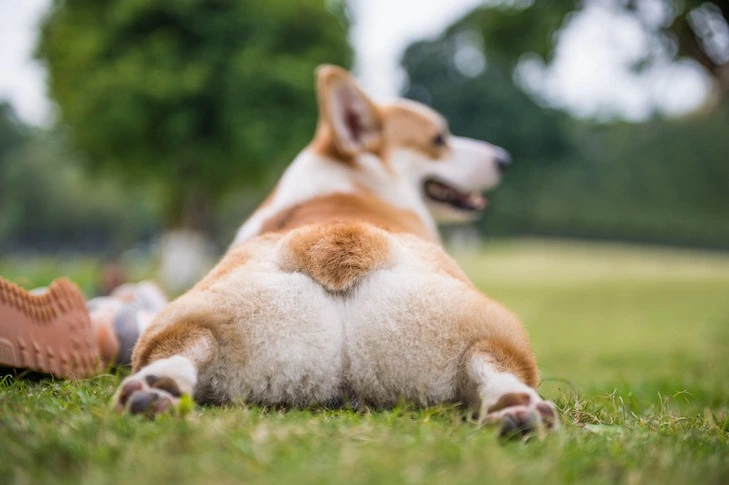As a dog owner, you may have heard of anal glands, but do you know their purpose and the common problems associated with them? Anal glands are small sacs located on either side of a dog’s rectum, and they play a crucial role in your dog's communication and health. In this article, we will explore the function of anal glands, common issues that can arise, and the appropriate treatments available.
What Are Anal Glands?
Anal glands, also known as anal sacs, are small glands located near a dog’s anus. Their primary function is to produce a strong-smelling fluid that dogs use for marking territory and communicating with other dogs. This fluid is usually expelled when a dog defecates, but sometimes it can become impacted or infected, leading to discomfort and health issues.
Common Problems with Dog’s Anal Glands
-
Anal Gland Impaction
- Description: This occurs when the anal glands do not empty properly, causing the fluid to build up. The glands can become swollen and painful, leading to discomfort for the dog.
- Symptoms: Signs of anal gland impaction may include excessive licking of the anal area, scooting on the ground, difficulty sitting, and a foul odor.
-
Anal Gland Infection
- Description: If the impacted glands are not treated, they can become infected. Bacteria may enter the glands, leading to inflammation and pus formation.
- Symptoms: In addition to the symptoms of impaction, dogs with anal gland infections may exhibit redness and swelling around the anus, discharge, fever, and increased pain.
-
Anal Gland Abscess
- Description: An untreated infection can progress to an abscess, which is a painful collection of pus that forms in the glands. This condition requires immediate veterinary attention.
- Symptoms: Symptoms of an anal gland abscess may include severe pain, swelling, an open wound, and systemic signs of illness such as lethargy and loss of appetite.
-
Anal Gland Tumors
- Description: In some cases, tumors can develop in the anal glands. While this is less common, it can occur and may be either benign or malignant.
- Symptoms: Signs of anal gland tumors may include swelling, difficulty defecating, blood in the stool, and changes in behavior.
Risk Factors for Anal Gland Problems
Several factors can increase the likelihood of anal gland issues in dogs, including:
- Obesity: Overweight dogs are more prone to anal gland problems due to the fat surrounding the glands, which can hinder their function.
- Diet: A low-fiber diet can lead to softer stools, which may not apply enough pressure to help empty the anal glands during defecation.
- Age: Older dogs may have weaker muscles around the anal area, making it more difficult for the glands to empty properly.
- Breed: Some breeds, such as small breed dogs, are more prone to anal gland problems than others.
Treatment Options
-
Manual Expression
- Description: A veterinarian or trained groomer can manually express the anal glands to relieve impaction. This procedure involves gently squeezing the glands to release the fluid.
- Frequency: Regular expression may be recommended for dogs prone to anal gland issues, usually every few weeks to months.
-
Antibiotics
- Description: If an infection is present, your veterinarian may prescribe antibiotics to treat the infection and reduce inflammation.
- Duration: Follow your veterinarian’s instructions on the duration and dosage of antibiotics.
-
Pain Relief
- Description: Pain management may be necessary for dogs experiencing discomfort from impaction or infection. Your vet may prescribe pain relief medications.
- Follow-Up: Monitor your dog’s pain levels and report any ongoing issues to your veterinarian.
-
Surgical Intervention
- Description: In severe cases, such as recurrent abscesses or tumors, surgical removal of the anal glands may be necessary. This is usually a last resort after other treatments have failed.
- Recovery: Post-surgical care will require close monitoring and adherence to your veterinarian’s instructions.
-
Dietary Changes
- Description: Increasing fiber in your dog’s diet can help produce firmer stools, promoting natural emptying of the anal glands. Consult your vet for dietary recommendations.
- Supplements: Fiber supplements may also be beneficial in some cases.
Prevention Tips
- Regular Vet Check-Ups: Schedule routine veterinary examinations to monitor your dog’s anal gland health.
- Maintain a Healthy Weight: Ensure your dog maintains a healthy weight through proper diet and exercise to reduce the risk of anal gland issues.
- High-Fiber Diet: Consider feeding a high-fiber diet to promote healthy digestion and stool consistency.
- Monitor Grooming: Regular grooming, including anal gland expression, can help prevent problems in dogs prone to anal gland issues.
When to See a Veterinarian
If you notice any signs of discomfort in your dog, such as scooting, excessive licking, or difficulty sitting, it’s essential to consult your veterinarian. Early intervention can prevent more severe problems and keep your dog comfortable and healthy.
Conclusion
Dog’s anal glands are often overlooked, but they play a significant role in your dog’s health and well-being. Understanding the common problems associated with anal glands and their treatments can help you be a more informed and proactive dog owner. Regular veterinary care, a healthy diet, and proper grooming practices can go a long way in preventing anal gland issues and ensuring your furry friend remains happy and healthy.


